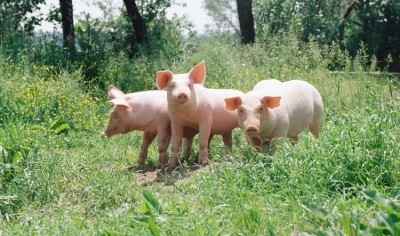News
Pork labels ‘misinform’ consumers over the sustainability of meat

A study by researchers at the University of Cambridge compared different types of pig farming – including woodland, free range, RSPCA assured, Red Tractor certified and organic – and their impact across land use, greenhouse gas emissions, antibiotics use and animal welfare.
Researchers found that none of the farm types performed consistently well across all four areas, a revelation that could have important implications for increasingly climate conscious consumers.
While a handful of farms did perform far better than average across all four environmental and welfare measures, none of the current label or assurance schemes predicted which farms these would be.
False narrative
The current narrative around food labelling does not accurately reflect how sustainable a pork product is and could be potentially misleading.
Harriet Bartlett, research associate at the University of Oxford’s Smith School of Enterprise and the Environment, said: “The way we classify farm types and label pork isn’t helpful for making informed decisions when it comes to buying more sustainable meat.
“Even more importantly, we aren’t rewarding and incentivising the best-performing farmers. Instead of focusing on farm types or practices, we need to focus on meaningful outcomes for people, the planet and the pigs – and assess, and reward farms based on these.”
Organic farming systems, which consumers might see as climate and environmentally friendly, have on average three times the CO2 output per kg of meat of more intensive Red Tractor or RSPCA assured systems and four times the land use, the report claimed.
Antibiotic use
However, these same systems use on average almost 90% fewer antibiotic medicines, and result in improved animal welfare compared with production from Red Tractor or RSPCA assured systems.
Bartlett called for a reform of the way livestock farms are classified in the face of rapid expansion of livestock production – especially pork production, which has quadrupled in the past 50 years and accounts fir 9% of greenhouse gas emissions from livestock.
“Our findings show that mitigating the environmental impacts of livestock farming isn’t a case of saying which farm type is the best,” Bartlett added. “There is substantial scope for improvement within types, and our current means of classification is not identifying the best farms for the planet and animals overall.
“Instead, we need to identify farms that successfully limit their impacts across all areas of societal concern, and understand, promote and incentivise their practises.”
Meanwhile, new research from Ingredion has found that clean label products will make up 70% of food and drink ingredient portfolios within the next two years.















